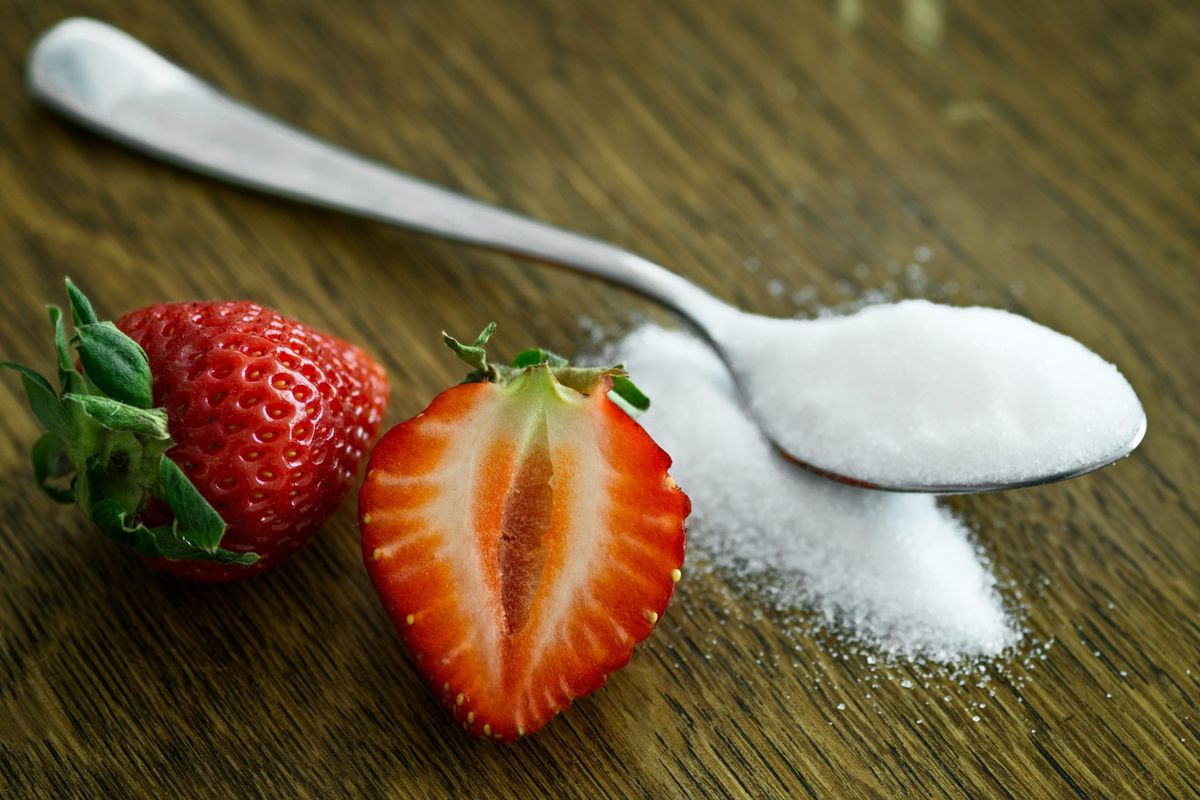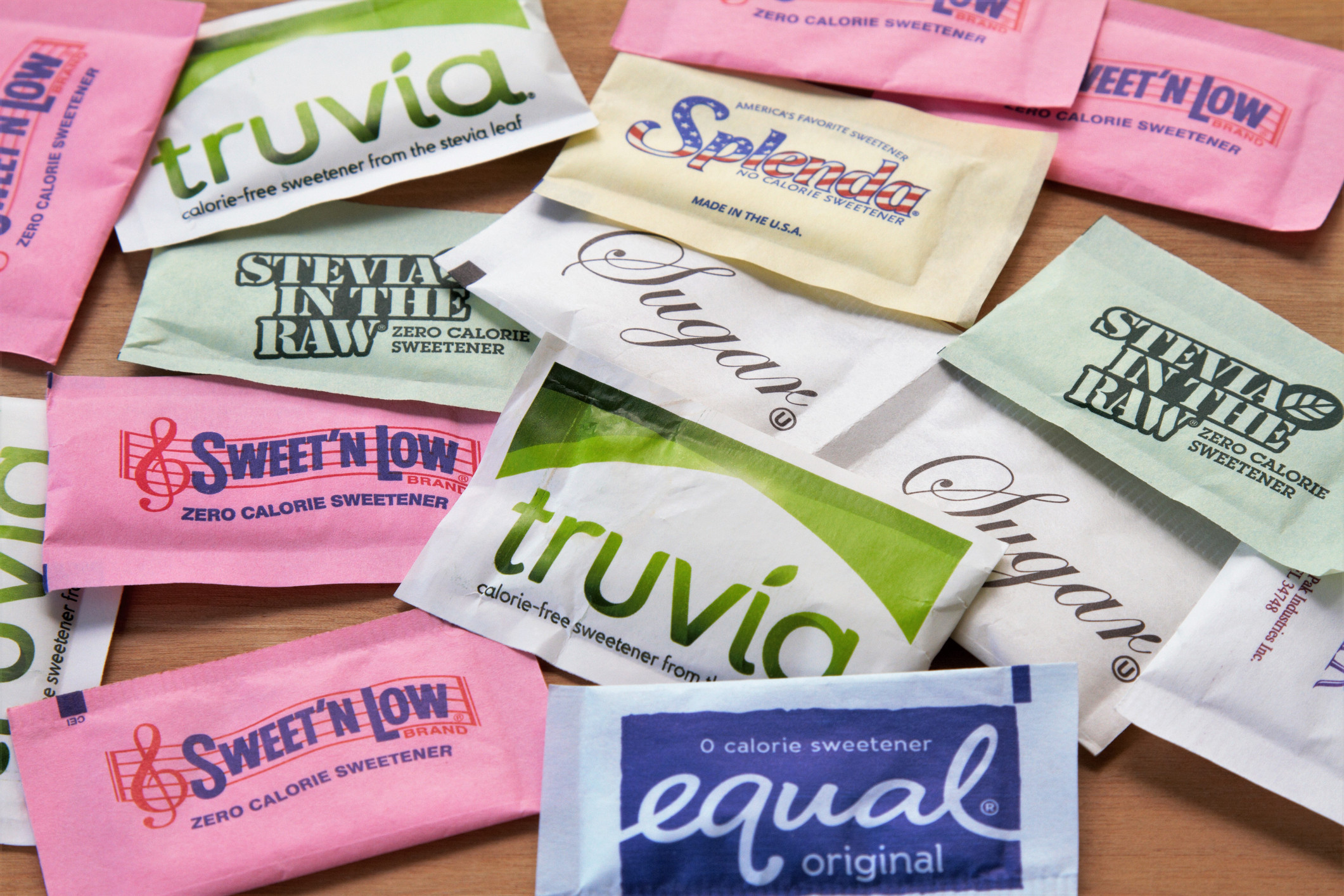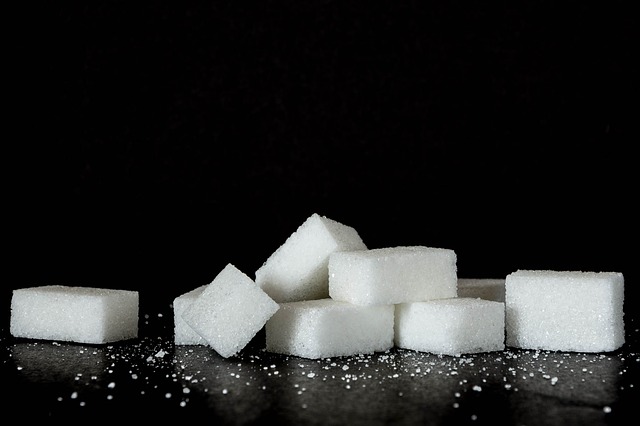Sugar substitutes versus sugar – which is less harmful?

A few minutes every morning is all you need.
Stay up to date on the world's Headlines and Human Stories. It's fun, it's factual, it's fluff-free.
We’ve all heard just how bad excessive sugar consumption is for our bodies, and many have opted for sugar substitutes as a healthy alternative, but are they actually any better?
A typical American adult consumes an average of 17 teaspoons (around 71g) of added sugars daily, nearly double the recommended daily intake for men, which is at 9 teaspoons (around 37g). The recommended daily intake for children and women is 6 teaspoons (around 25g).
Consuming excessive sugar can result in serious health risks such as heart disease and obesity. Not only that, each gram of sugar contains around 4 calories with minimal to no nutritional value, and so they are considered to be “empty calories” which cause spikes in your blood sugar levels, followed by a crash. This crash is what causes you to become tired and crave more food. This negative cycle can lead to consuming too many calories which can result in both weight and fat gain.
Sugar substitutes can be quite attractive for those looking to lose weight or eat healthier since they contain almost no calories. Plus, some of them do not cause spikes in blood sugar levels, meaning they are suitable for diabetic patients due to their low glycemic index levels (which measure how quickly foods raise blood sugar levels). According to head coach and owner of AIM Athletic, Jake Harcoff, consuming both sugar and sugar substitutes is fine in moderation. However, “someone who needs to lose significant weight, or suffering from medical issues where sugar needs to be avoided, may benefit from using a sugar substitute.”
Most sugar substitutes are around 200-600 times sweeter than table sugar. They stimulate your taste buds without you ingesting the amount of calories regular sugar contains. Sugar substitutes are classified into three main categories: artificial sweeteners, sugar alcohols and novel sweeteners. Each category comes with their own set of benefits and drawbacks.
Which are the best artificial sweeteners?

When you think of sugar substitutes, artificial sweeteners are what most people would think of first. As the name suggests, all of these sweeteners are “artificial,” meaning they are made in a lab and highly processed.
Sucralose (Splenda)
Present in most processed foods, this sugar substitute is the most popular artificial sweetener out there currently. Sucralose is mostly used as a substitute for sugar in baking and cooking and is 400-700 times sweeter than sugar.
Sucralose also does not leave a bitter aftertaste that many other sweeteners do, making it closer to tasting like real sugar. Although sucralose has not been deemed to be carcinogenic by the FDA, sucralose contains chlorine. Chlorine is a carcinogen which is used in many pesticides, plastics and poisonous gases.
While sucralose on its own contains no calories since it is not absorbed by the body, Splenda’s sugar substitutes also contain dextrose and maltodextrin, and thus contain 3.36 calories per gram, which is only a little less than table sugar. Thus, consuming excessive amounts of Splenda can still result in weight gain and the same health issues as sugar. So, there are better artificial sweeteners for diabetes. If a product has “E955” written in its ingredient list, then it contains sucralose.
Aspartame (Equal, NutraSweet)
Used in both hot and cold foods, aspartame is the only artificial sweetener which contains the same amount of calories as sugar. However, since it is 200 times sweeter than sugar, a much smaller amount is required to achieve the same level of sweetness as sugar. Although, aspartame has been shown to lose some sweetness when cooked at high temperatures.
For many years, aspartame was thought to be carcinogenic. However, the FDA in recent years has considered it safe for human consumption. Those who suffer from phenylketonuria (PKU) should avoid aspartame as it could lead to brain damage. If a product has “E951” written in its ingredient list, then it contains aspartame.
Acesulfame Potassium/Ace-K (Sweet One)
Similar to aspartame, ace-K is also 200 times sweeter than sugar, and like sucralose, has not been proven to be carcinogenic. However, this sugar substitute does contain methylene chloride, which is a carcinogen. Exposure to methylene chloride has been shown to cause depression, nausea, headaches, kidney and liver effects and cancer.
So while the use of ace-K is still legal, and the FDA has not done further testing, the uncertainty surrounding the safety of this sugar substitute makes this artificial sweetener one to avoid. If a product has “E950” written in its ingredient list, then it contains acesulfame potassium.
Saccharin (Sugar Twin, Sweet’N Low)
Claimed to be the “best researched and safest artificial sweetener,” this zero calorie sugar substitute is 200-700 times sweeter than table sugar, however is known to have a bitter aftertaste. Other than in food, saccharin is also used in cosmetic products, vitamins and pharmaceuticals.
Saccharin is known to cause allergic reactions for individuals who cannot stand sulfa drugs, and can result in headaches, diarrhea, skin eruptions and breathing difficulties. Those who are pregnant or breastfeeding should avoid consuming saccharin since it is believed to cause muscle dysfunction, although no studies have claimed this to be true as of yet. If a product has “E954” written in its ingredient list, then it contains saccharin.
Neotame (Newtame)
This artificial sweetener is basically aspartame without the phenylalanine risks for those suffering with PKU. It is 7000-13000 times sweeter than table sugar and is promoted as being a flavor enhancer and safe for everyone to consume, including those breastfeeding and pregnant.
Because it is the newest sweetener to be approved, the long term effects of neotame have not been studied, and its chemical similarities with aspartame could mean it could cause the same issues for certain individuals. If a product has “E961” written in its ingredient list, then it contains neotame.
Advantame
Another aspartame-related sweetener approved by the FDA in 2014, this artificial sweetener is 20,000 times sweeter than table sugar and 110 times sweeter than aspartame. It tastes similar to sugar and is more chemically stable than aspartame at high temperature.
Like neotame, advantame does not pose phenylalanine risks and can be consumed by anyone. Additionally, it has been studied more extensively than neotame with no significant long term effects on humans. Unlike aspartame, advantame contains zero calories, making it the best bang for your buck regardless of if you are a child, pregnant, breastfeeding, diabetic or suffering from PKU. If a product has “E969” written in its ingredient list, then it contains advantame.
What are sugar alcohols?

Although some sugar alcohols are made in labs, sugar alcohols are a form of carbohydrates that naturally occur in plants. The chemical structure of sugar alcohols are similar to both sugar and alcohol (hence why they are called sugar alcohols).
Even though alcohol is present in these low calorie sugar substitutes, they do not contain ethanol, which is the type of alcohol which leads to intoxication. Because of its similar chemical structure to sugar, sugar alcohols trigger the sweet taste receptors on your tongue for delivering the “sweetness.” The majority of sugar alcohols are processed from sugars and starches via a chemical manufacturing process.
Unlike most artificial sweeteners, sugar alcohols do contain some calories, although they aren’t as calorie dense as table sugar. Sugar alcohols are popular in sugar-free products like chewing gum, low-calorie ice cream, protein bars and several dental products like mouthwash and toothpaste. Sugar alcohols are not carcinogenic, and some even provide health benefits. There are many sugar alcohols available, however listed below are the most common.
Xylitol
The most popular and researched sugar alcohol, xylitol is found in chewing gums and toothpaste. Xylitol contains 2.4 calories per gram and is 95% as sweet as regular sugar. It is well tolerated by the human body, however it has shown to cause some digestive issues when consumed excessively by some individuals.
Note that while xylitol is safe for humans, it is extremely toxic for dogs. If a product has “E967” written in its ingredient list, then it contains xylitol.
Maltitol
This sugar alcohol has the closest taste and texture to regular sugar because of the way it is chemically processed. Maltitol contains 2.1 calories per gram and is 90% as sweet as regular sugar.
However, unlike other sugar alcohols, maltitol is partially absorbed by the body, resulting in blood sugar spikes, although it is much less than sugar. Thus, if you are diabetic, it would be best to avoid foods containing maltitol to avoid increasing your blood sugar levels. If a product has “E965” written in its ingredient list, then it contains maltitol.
Sorbitol
Also known as glucitol, this sugar alcohol is metabolized slowly by the human body. Sorbitol contains 2.6 calories per gram, and is 60% as sweet as regular sugar. It has minimal impact on blood sugar and insulin levels, although like xylitol, can cause digestive issues. If a product has “E420” written in its ingredient list, then it contains sorbitol.
Mannitol
Also used in medication to decrease pressure in the eyes, this sugar alcohol contains only 1.6 calories per gram, and is 50% as sweet as regular sugar. If a product has “E421” written in its ingredient list, then it contains mannitol.
Lactitol
This sugar alcohol contains approximately 2 calories per gram, and is 30-40% as sweet as regular sugar. Lactitol is known to have a mild laxative effect in some individuals. If a product has “E966” written in its ingredient list, then it contains lactitol.
Isomalt
Containing 2 calories per gram, Isomalt is 50-60% as sweet as sugar, and like xylitol, can cause digestive issues if consumed excessively. If a product has “E953” written in its ingredient list, then it contains isomalt.
Erythritol
Although this sugar alcohol is only 70% as sweet as regular sugar, erythritol only contains 0.24 calories per gram, making it the lowest calorie sugar alcohol currently available. Erythritol does not cause digestive issues like xylitol or raise blood sugar levels like matitol since most of it is absorbed in the bloodstream and then excreted through urine. Erythritol is commonly used in conjunction with the novel sweetener stevia. If a product has “E968” written in its ingredient list, then it contains erythritol.
Is sugar alcohol bad for you?
Sugar alcohols are great sugar substitutes since they contain fewer calories, don’t cause blood spikes (except for maltitol) and are almost as sweet as regular sugar. Erythritol seems to be the best sugar alcohol since it contains the least amount of calories and does not cause significant digestive issues. They also provide several health benefits like protecting tooth decay and improving bone and skin health.
The only major issue with sugar alcohol is potential digestive problems, so if you have an irritable bowel syndrome or are sensitive to FODMAPs, then it would be best to stay away from sugar alcohols, or maybe use erythritol instead.
What about other sugar substitutes?

Novel sweeteners are newer discoveries that do not belong in either category since they do not have the chemical structure that artificial sweeteners have, nor are they processed from sugar. The most popular novel sweetener is stevia. Stevia, also known as stevia extract, is a plant-based sweetener that contains zero calories and is 200 times sweeter than regular sugar. However, it does taste slightly different to sugar, and some may not enjoy the aftertaste it leaves.
Another popular novel sweetener is the monk fruit sweetener. Monk fruit sweetener comes from a native fruit in China called “Luo Han Guo” and contains zero calories. Like stevia, some may not like the taste of the sweetener, even though it is up to 200 times sweeter than regular sugar.
Although tagatose is classified as an artificial sweetener, it is considered to be a novel sweetener since it is less sweet than regular sugar. Also, unlike the other novel sweeteners, tagatose contains 1.5 calories per gram and is more expensive compared to other sugar substitutes due to its high manufacturing cost.
So to summarize, artificial sweeteners are a better option than sugar if you’re looking to cut weight, however their potential side effects and the fact that they are artificial do not make them a healthier option.
Although less sweet than sugar, erythritol is the best sugar alcohol due to being the least calorie dense and having all the benefits the other sugar alcohols have while not posing any of the side effects of other sugar alcohols.
Novel sweeteners like stevia or monk fruit seem to be the best option since they contain no calories, are 200 times sweeter than sugar and have health benefits, however some may not enjoy their taste. Just like too much of anything is bad, all sugar substitutes should be consumed in moderation to avoid experiencing some of the symptoms they can potentially present if eaten in large amounts.
Have a tip or story? Get in touch with our reporters at tips@themilsource.com




Comments ()